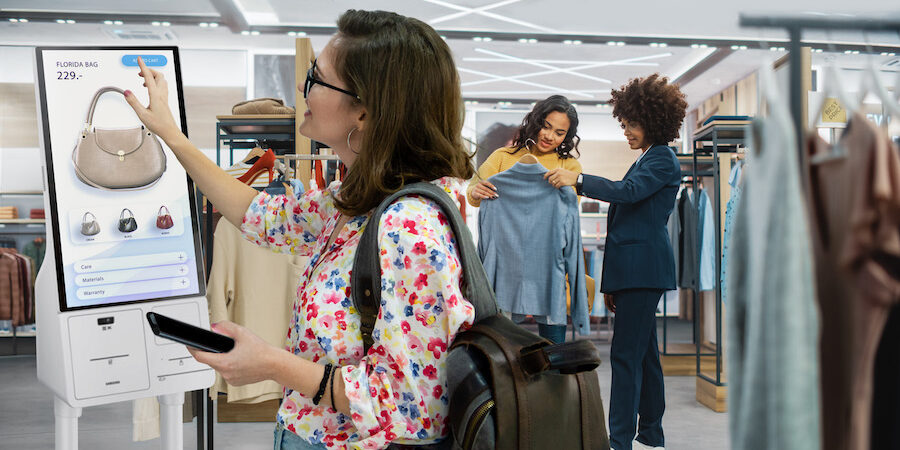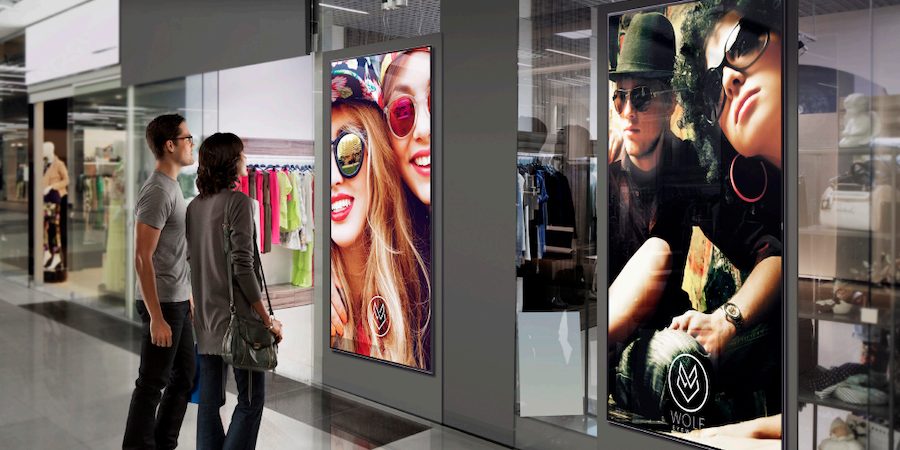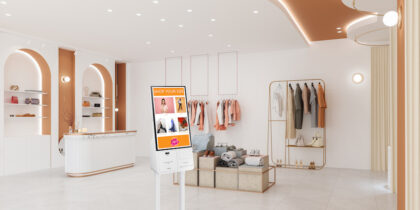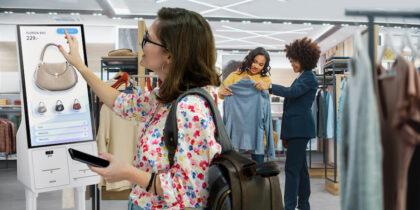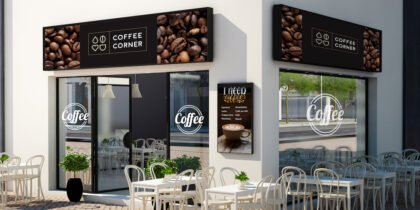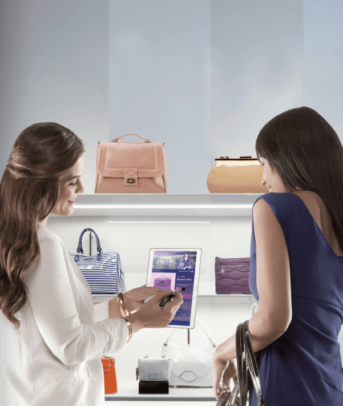When shoppers enter brick-and-mortar stores, they expect their interactions to be even more fulfilling than online shopping. Interactive retail store displays provide the means to give them this engaging, personal and immersive shopping experience. New digital innovation options meet today’s shoppers’ evolving needs and inspire more purchases by reaching them at the right moment with the right message.
It also taps strong consumer preferences for a human, in-person experience at retailers, even with the increasing integration of artificial intelligence. This is backed up by data from PwC that shows 46% of consumers value seeing and touching products, and 40% enjoy the instant gratification of an in-store purchase. Remarkably, the affinity grows with Gen Z, 60% of whom use stores for discovery and 56% for purchases.
Seamlessness across all channels is another expectation that digital displays, kiosks and other technologies can help deliver. As a result, retailers who leverage them effectively can meet customers where they are with a multi-sensory, immersive shopping experience that feels both personal and easy. Here’s how.
Seamless, immersive, interactive shopping experiences
Brick-and-mortar stores remain vital for retail, but shoppers still want in-person shopping to be more like it is online: seamless, immersive and interactive. All three can be achieved when retailers leverage digital solutions, such as displays and kiosks, and those that do see significant benefits.
The future of retail is digital
Get your free guide to growing your retail business by adopting future-proof ecommerce technology. Download Now
A great example is Good American, a size-inclusive and diverse fashion brand co-founded by Khloé Kardashian. Two Samsung LED Displays welcome customers in the entryway of the retail store location in Century City, Los Angeles, while a large-format display further inside the store showcases inventory. A 98-inch vertical display of Khloé offers a bit of spectacle and fun that works well on social media.
The social media element is powerful, too. It encourages customers to interact with the display and share the experience with a potential pool of new customers. If a person has a lot of followers, the impact can be even greater on the bottom line. According to the 2024 Influencer Marketing Report by Sprout Social, 49% of all consumers are inspired by influencer posts to make daily, weekly or monthly purchases. As such, businesses that create dynamic, immersive experiences that appeal to social media may reap significant rewards.
With an intuitive, all-in-one payment and ordering system, self-service kiosks can also make the shopper journey more seamless. Creating an “endless aisle,” retail devices like Samsung Windows All-In-One Kiosk allow customers to order products that aren’t currently on the shelf, and the same kiosk can be used for quick self-checkout and more.
Curating customer journeys
When it comes to customer journeys, personalization has become the credo, and retailers have every reason to recognize and act on that. In fact, according to a report by Deloitte, nearly 75% of consumers are not only more likely to buy products from brands that deliver personalization, but they’ll also spend 37% more. The same report showed tremendous gains for personalization leaders in revenue goals, customer loyalty and purchase frequency.
Retail stores can implement interactive displays such as Samsung Interactive Display to customize and curate the in-person shopper journey. Linked to Bluetooth-based location services, the displays can greet customers with a personalized message when they enter the store, as well as provide user-friendly wayfinding — even step-by-step directions to a specific section of the store and certain products. Samsung’s QB13R-TM Series provides a 13-inch display, ideal for placing screens throughout a retail environment, while Samsung QMR-T Series allows stores to showcase the excitement of their brands on 32-inch, 43-inch or 55-inch displays.
This becomes all the more effective with a robust content management system (CMS) like Samsung VXT. Not only does it provide the tools, templates and graphics to create dynamic content for displays, but also a streamlined, centralized management system to deliver the right message at the right time to the right people.
Tech drives tangible experiences
Customers who shop in-store rather than online seek enjoyment and convenience. Stores that use interactive retail displays, self-service kiosks, sensor technology and social media integrations can better engage with their customers. Guiding them through the store and informing them about the products they’re interested in, these display solutions allow brick-and-mortar stores to create a more fulfilling, memorable, and immersive retail experience that is as seamless as today’s consumers expect — online and in-person.
Find everything you need to know about choosing your store’s LED displays for optimal viewing indoors and out in this free guide. Also learn more about how personalized journeys are changing the in-store retail experience.
